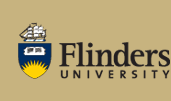
To be read in conjunction with the program of study requirements for the Bachelor of Science.
The Aquaculture Specialisation is offered as part of the Bachelor of Science and requires three years of full-time study (or the equivalent part-time). The Specialisation is offered by the School of Biological Sciences, within the Faculty of Science and Engineering.
Specialisations have different admission requirements to other programs of study available in the Bachelor of Science. In order to undertake a Specialisation students must be admitted to the Specialisation program. The name of the Specialisation will appear on the transcript and parchment.
The minimum requirements for consideration for entry to all undergraduate courses are specified in detail in the University Entry Requirements.
The course aims to provide students with a broad-based foundation in science together with specialisation in aquaculture.
This course enables graduates to develop practical and theoretical skills for a career in the aquaculture industry.
Specifically, the graduates will gain a range of transferable research, analytical and communication skills including the capacity to:
On completion of their degree, students will have developed a comprehensive and well-founded knowledge in aquaculture and a range of transferable professional skills.
Graduates of the course are expected to be able to:
To qualify for the Bachelor of Science (Aquaculture) specialisation a student must complete 108 units, with a grade of P or NGP or better in each topic, according to the program of study detailed below.
No more than 45 units of First Year level topics may be included in the 108 units for the degree. Topics designated 'any year' or with no year level specified are regarded as First Year level topics.
Elective topics to complete 108 units may be selected from any offered within the University or, with approval from the Faculty of Science and Engineering, from outside the University, provided any course and prerequisite requirements are met.
Not all topics are necessarily available in a given year.
Students who have completed 72 units or more with a grade of P or NGP or better in each topic, according to the following rule, may exit with the Diploma of Applied Science:
Except where there is an approved double specialisation (see Bachelor of Science program of study) the same upper level (2xxx or above) topic cannot be counted twice. For example an upper level topic that is counted towards a specialisation may not also be counted towards a minor.
36 units comprising:
BIOL1101 Evolution of Biological Diversity (4.5 units)
BIOL1102 Molecular Basis of Life (4.5 units)
BIOL1201 Introduction to Aquaculture# (4.5 units)
Plus 9 units of First Year Science topics
Plus 9 units of elective topics*^ from across the University where entry requirements are met.
Plus one of:
CHEM1101 Chemistry 1A# (4.5 units)
CHEM1201 Introduction to Chemistry A# (4.5 units)
36 units comprising:
BIOL2701 Experimental Design and Statistics for Biology (4.5 units)
BIOL2702 Genetics, Evolution and Biodiversity (4.5 units)
BIOL2711 Ecology (4.5 units)
BIOL2712 Animal Diversity (4.5 units)
BIOL2731 Aquaculture Nutrition and Water Quality (4.5 units)
BIOL2732 Aquaculture Systems and Technology (4.5 units)
Plus 9 units of elective topics*^ from across the University where entry requirements are met.
36 units comprising:
BIOL2722 Disease and Immunology (4.5 units)
BIOL3711 Plant and Algal Diversity (4.5 units)
BIOL3731 Aquaculture Reproduction (4.5 units)
BIOL3732 Aquaculture Health and Product Quality (4.5 units)
BUSN2026 Entrepreneurship and Small Business (4.5 units)
Plus 9 units of elective topics*^ from across the University where entry requirements are met.
Plus one of:
BIOL3702 Marine and Freshwater Biology (4.5 units)
BIOL3712 Integrative Physiology of Animals and Plants (4.5 units)
BUSN3026 Business Planning for New Ventures (4.5 units)
#These topics are cognate studies topics which must be taken to complete the specialisation.
*Students may choose to undertake a Bachelor of Science Minor as part of the elective component of their degree subject to meeting course/topic requirements.
While students are able to select elective units from anywhere across the University, these are recommended electives.
BIOL1112 Biology and Society** (4.5 units)
BIOL1301 Introduction to Marine Biology** (4.5 units)
BIOL2742 Marine Ecology** (4.5 units)
BIOL3700 Biology Research Project (4.5 units)
BIOL3701 Conservation Biology and Restoration Ecology (4.5 units)
BIOL3751 Marine Mammals, Birds and Reptiles (4.5 units)
BIOL3752 Fisheries Biology, Science and Management** (4.5 units)
CHEM1102 Chemistry 1B** (4.5 units)
EASC1101 Earth and Environmental Sciences (4.5 units)
EASC1102 Marine Sciences (4.5 units)
EASC2701 Coasts and Oceans (4.5 units)
ENVR1101 Environmental Science (4.5 units)
ENVS2721 Environmental Decision Making Tools (4.5 units)
PHYS1701 Physics for the Life Sciences A (4.5 units)
STAT1412 Data Analysis Laboratory** (4.5 units)
**Highly Recommended Electives
Admission to an honours program may be offered to a student who meets certain academic criteria and subject to the school/department being able to provide appropriate resources and staff to supervise the program of study. Refer to Bachelor of Science (Aquaculture) (Honours).
The Bachelor of Science (Aquaculture) may also be studied in a combined degrees program with the:
CRICOS Provider: 00114A | Updated: 25 Oct, 2011